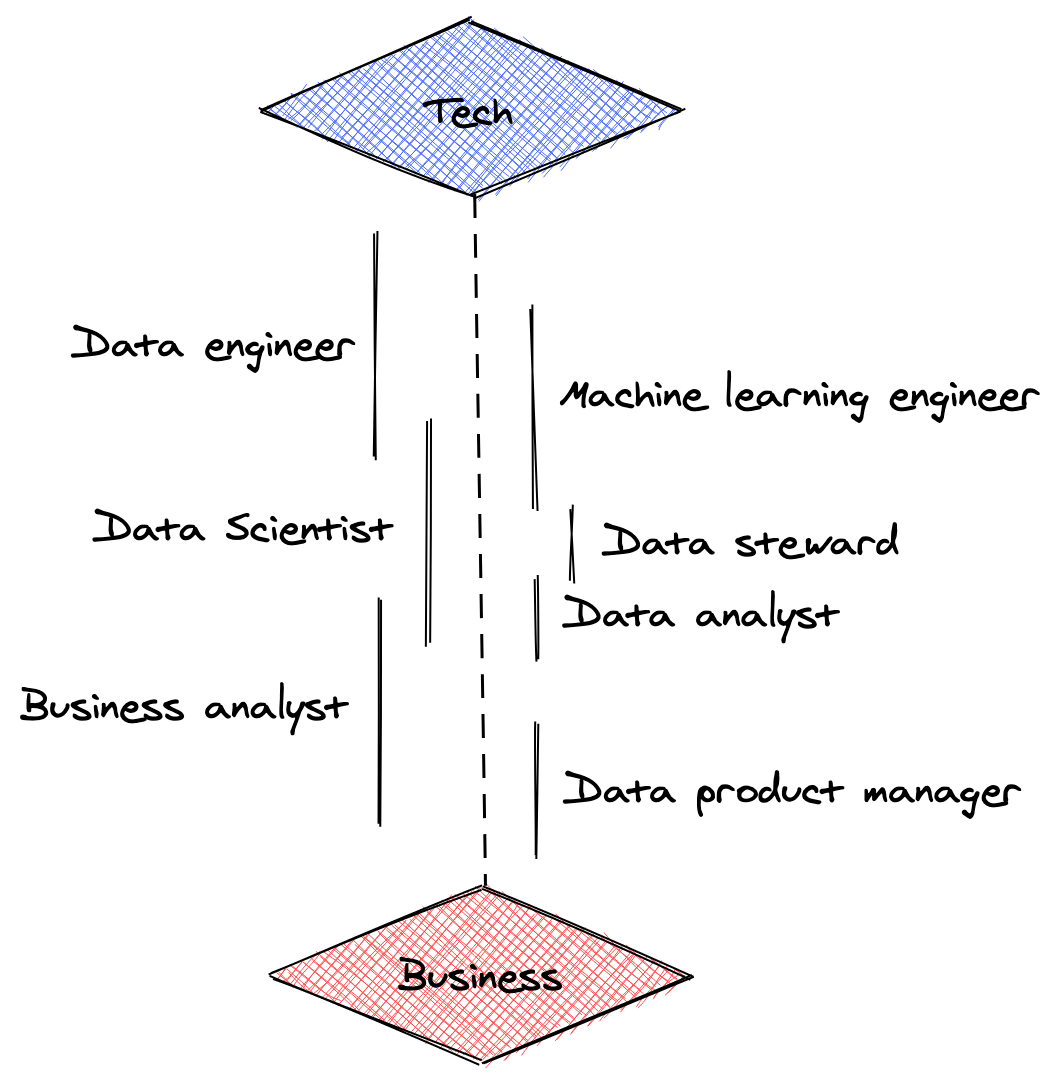December 17, 2020 - 2 min read
Data scientist: the messiest job of the 21st Century
Yes you read right. The problem is not the science, it is the job title.

Data related job titles are poorly understood and defined.
Most people don’t know what data scientists, engineers or analysts are doing. In social situations, how many times after saying what I do, did I get a “You’re a kind of IT guy?” I don’t try anymore to really explain. Even people with the job title might not precisely know what the spectrum of their own job is.
Data science is not new but the success of the field on the global market is recent. This means that titles and functions are not yet well defined and perfectly integrated into our corporate structures.
When you browse for data scientists job offers, you come with a breadth of descriptions and functions that would scare away even the legendary data scientist unicorn.
Data science, as a field is creating value, no doubt. But, if your job title is basically the name of the field, it is at best rough. A physicist is not deeply knowledgeable about everything that happens in physics. Same logic applies here.
Data science jobs cannot easily fit into well separated buckets. Data professionals travel along a continuum between technology and business. For now, most of the data related jobs have overlapping spectrums as I have illustrated below.

Data science consulting is “worse” as you are likely to travel all the way from deep engineering to business strategy - one of the reasons it might be a rewarding challenge.
Even if the borders are blurry, we can hint on typical tasks. Scientists for instance have often a focus on the why, while engineers might dedicate more energy on the how. Why are clients in those circumstances not buying any products? Might be a question for typical data scientist. How to make sure that data [X] is present in this database available to clients worldwide? is likely to present more interest to a data engineer. It does not mean that one will not be interested by the other, but the amount of energy dedicated to these questions will differ.
Finally, instead of recruiting someone with a specific job title or diploma, I would rather focus on someone having certain skills and attitude. Unfortunately, if you try to search for skills instead of job titles, current search engines are poorly equipped (based on poorly detailed professional profiles). Job titles are useful shortcuts but nowadays, when we are basically certain to have many jobs in a lifetime, is it not the time to look beyond the front door?